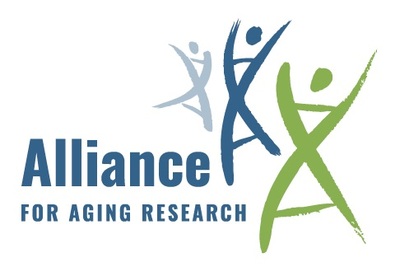|
20.07.2023 21:24:00
|
Talking About Neuropsychiatric Symptoms of Alzheimer's Disease
New videos featuring expert conversations aim to shake the stigma
WASHINGTON, July 20, 2023 /PRNewswire/ -- A new video series from the Alliance for Aging Research—Expert Conversations on Neuropsychiatric Symptoms of Alzheimer's—is now available to help shake the stigma of talking about neuropsychiatric symptoms (NPS) and to help those living with Alzheimer's disease create a care plan and get the support they deserve.
I sometimes feel embarrassed because I have to admit my inconsistencies...it's part of the emotions that you go through.Diseases and injuries that damage the brain can change how we interact with the world and lead to significant behavioral and psychological symptoms—also referred to as neuropsychiatric symptoms (NPS). These symptoms can include anxiety, depression, agitation, apathy, socially inappropriate behavior, psychosis, sleep disturbances, and more. Neuropsychiatric symptoms can be challenging, and often lead to social isolation due to stigma. The reality is that neuropsychiatric symptoms often require medical attention and are as much a product of the disease as changes to memory and cognition.
The videos feature a clinician, family caregivers, and patient advocates living with Alzheimer's disease:
- Carolyn Clevenger, DNP, RN, is a Gerontological Nurse Practitioner and Director of the Integrated Memory Care Clinic at Emory University. In her video, she shares more details on NPS as well as how she regularly talks with families living with Alzheimer's about NPS. "No one has said to me or questioned, why would I be asking about neuropsychiatric symptoms," she said in her interview. "They are generally relieved that someone has asked the question and made the space for them to talk about how they feel and their own experiences."
- Carrie Shaw cared for her mother who was living with Alzheimer's disease and is CEO and Founder of Embodied Labs, a company dedicated to using technology to help people see the world through the eyes of the people they care for. In developing the technology Carrie shared, "I was very excited about how to explain neuropsychiatric symptoms—especially in the early stages of Alzheimer's—because to me that was the biggest gap that I was missing when I was a caregiver."
- Shon Lowe, a family caregiver to her mom Terrie Montgomery, who was also interviewed for this series, shared helpful resources and advice that had resonated with her. "Sometimes I want to take over and I was told by a really wonderful person when to walk in front of my mother, when to walk on the side of my mother, and when to walk behind my mother," she said. "And that sticks with me every day. Because sometimes I want to lead and it's not time to lead. And sometimes I need to be on the side and just understand. And sometimes I need to let her do her thing."
- Terrie Montgomery, an advocate and person living with Alzheimer's, talked about her lived experience with Alzheimer's and NPS so that others would feel more comfortable sharing and talking about their symptoms. "I sometimes feel embarrassed because I have to admit my inconsistencies," she said. "I have to admit my habits that I used to have now are changing. My level of tolerance is changing…But it's part of the emotions that you go through."
- Jay Reinstein, an advocate and person living with Alzheimer's, encouraged people to get help for their NPS, and to remember that they are more than their symptoms. "I don't want that label of Alzheimer's, early stage, whatever it is on my forehead," he said in his interview. "But I'm more than that and I think it's reducing that stigma and saying to people, 'Look at me, I'm living life. I'm living life.'"
These videos were created with support from Otsuka and Lundbeck.
To learn more about neuropsychiatric symptoms related to dementia and Alzheimer's disease, and to view all of these expert videos, visit www.agingresearch.org/NPS.
The Alliance for Aging Research is the leading nonprofit organization dedicated to accelerating the pace of scientific discoveries and their application to vastly improve the universal human experience of aging and health. The Alliance believes advances in research help people live longer, happier, more productive lives and reduce healthcare costs over the long term. For more than 30 years, the Alliance has guided efforts to substantially increase funding and focus for aging at the National Institutes of Health and Food and Drug Administration; built influential coalitions to guide groundbreaking regulatory improvements for age-related diseases; and created award-winning, high-impact educational materials to improve the health and well-being of older adults and their family caregivers. For more information, visit www.agingresearch.org.
For more information about the Alliance for Aging Research or to interview one of the video's participants on NPS, please contact Katie Riley, Vice President of Communications, at kriley@agingresearch.org.
Media Contact: Katie Riley, Vice President of Communications, kriley@agingresearch.org
![]() View original content to download multimedia:https://www.prnewswire.com/news-releases/talking-about-neuropsychiatric-symptoms-of-alzheimers-disease-301882511.html
View original content to download multimedia:https://www.prnewswire.com/news-releases/talking-about-neuropsychiatric-symptoms-of-alzheimers-disease-301882511.html
SOURCE Alliance for Aging Research
 Der finanzen.at Ratgeber für Aktien!
Der finanzen.at Ratgeber für Aktien!
Wenn Sie mehr über das Thema Aktien erfahren wollen, finden Sie in unserem Ratgeber viele interessante Artikel dazu!
Jetzt informieren!
